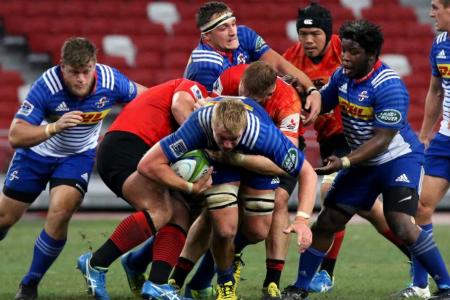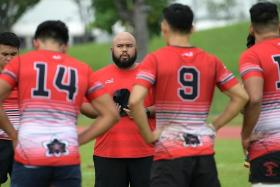Super Rugby looking to learn from 2016 lessons
Super Rugby side the Sunwolves travelled some 90,000 kilometres in the 2016 season - more than twice the circumference of the earth - a number that translated to more than 110 hours in the air.
Co-based in Tokyo and Singapore, the Sunwolves faced one of the worst travel schedules of Super Rugby's 18 teams and, while a tough schedule cannot be eradicated from a league that features teams from four continents, the league has picked up lessons from the past year.
Andy Marinos, chief executive officer of South Africa, New Zealand, Australia and Argentina Rugby (Sanzaar) believes his team are now better equipped to manage the travel challenge.
"Logistically, last season presented quite a few challenges. Our biggest challenge is the geographical expanse in this competition," he told local media yesterday.
"We're working on what we believe is a much better draw.
"The teams will still have to travel - that's not going to change, but we've had some key learnings out of 2016 that we can implement this year."
Travel is not the only challenge this year.
There are five Australian sides in the league, with the Australia Rugby Union (ARU) struggling to find sponsors for the season that kicks off on Feb 23.
"It is a worry. (The sponsor situation) is not good in South Africa either but, again, (rugby is a) performance sport and a lot of your commercial revenues are driven by the strength of the performances of the teams," said Marinos, who noted that both South Africa and Australia performed poorly by their standards last year.
"One thing I do know is that my colleagues at the ARU have a very firm handle on the situation, they are very aware of it."
Marinos does not think the Aussie and South African situations will affect sponsorship in the Asian market.
"The Sunwolves are a fresh brand, you've got some exciting players in the mix and it's a new market for Japanese and Asian companies," he said, pointing to the injection of world-class rugby into markets like Singapore.
"You've got to have a strategy on how you develop each market - there's no quick fix."
While the Sunwolves have faced criticism for a 2016 season that saw them register a solitary win in 15 attempts, Marinos believes they have done well.
"It's going to take two to three years for them to get used to the intensity of this competition," said Marinos, who turned out for the Stormers in the late 1990s.
"They did really well, won a lot of new fans and played an entertaining and exciting brand of rugby."
Singapore will have three opportunities to catch the Sunwolves' brand of rugby at the Singapore Sports Hub this year.
Led by new head coach Filo Tiatia, the Sunwolves will host the Southern Kings (March 4), the Stormers (March 25) and the Sharks (May 20) at the National Stadium.
The Sunwolves will start their season on Feb 25 facing defending champions, the Hurricanes, at Tokyo's Prince Chichibu Memorial Rugby Ground.
Get The New Paper on your phone with the free TNP app. Download from the Apple App Store or Google Play Store now



